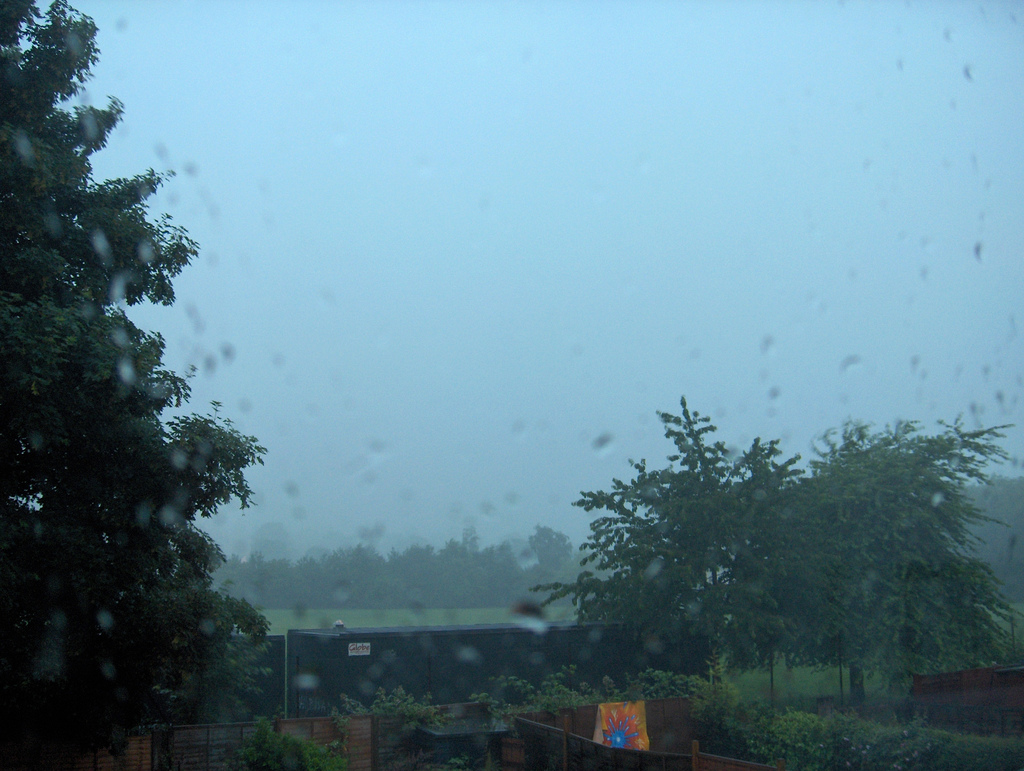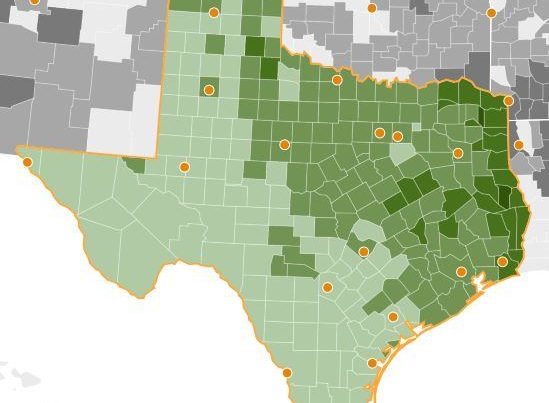It’s been a hot dry summer for the most part. But many parts of Texas have seen rain over the past few days. A good rainstorm can not only replenish plants and trees and refill water resources. It can also stimulate our senses – sight and sound, of course, but also our sense of smell?
People talk about the smell of rain, but how would you describe the scent? Tim Logan, an instructional assistant professor of atmospheric sciences at Texas A&M, recently wrote for the Conversation about why we can smell rain.
Logan acknowledges there is in fact a smell of rain, “especially if it hasn’t rained in a while, and then clouds start building and then you notice that the air smells a little bit different,” he says.
Logan describes the smell as “[an] earthy muddy scent, something that is pleasant, but it doesn’t smell like anything that you would typically have in your house.”
Logan got interested in the topic after he noticed the particular scent of rain, both in rural and urban environments. He remembers his grandparents telling him they knew “when rain was coming.”
The smell is noticeable just before a rain event, during the downpour and also a little bit after it’s over. The explanation behind the phenomenon lies in the moisture of the air.
It isn’t exactly raindrops that we smell when we “smell rain,” but rather a reaction of soil when moisture hits if.
“There is a compound that becomes active in the soil as it gets moistened,” Logan says.
This combination of fragrant chemical compounds is called petrichor. The smell comes from plant oils and tiny microorganisms called actinobacteria, which engage in a process of decomposition that contributes to the smell of rain.
“After a prolonged period of dryness, these critters are not very active, but it only takes a little bit of moisture to get them active and they will start decomposing in the soil and then they will release the compound,” Logan says.
Written by Alvaro Cepedes.
















